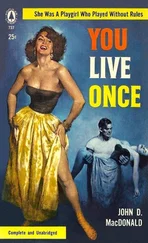And there were bands of soldiers, too, who raided the villages periodically. They were more unpredictable than the wolves: they might demand livestock, or liquor, they might set homes ablaze for the sake of warming their hands, to melt the frost off their spurs. They took the young men off for the army, dragged them away in carts as the mothers ran alongside screaming good-byes to their sons and heaping curses on the soldiers. Such men were never heard from again.
Sometimes the bandits attacked the soldiers and stole their military boots and jackets for themselves. Sometimes the soldiers wore shaggy fur cloaks to keep out the cold. Sometimes the wolves walked on their hind legs like men.
In the dark they were indistinguishable from one another.
Once a week during the long winters people crowded into the village meetinghouse to pray. We were not particularly fervent; we came for the change of scene. People said that being trapped in one room with the same family members for months on end could drive a person mad.
People liked to tell of one couple who lived in the village before I was born. The two were newlyweds, and they decided to avoid the weekly services and live out the winter with no one but each other. They spent the entire cold season sitting side by side on the same bench before the fire. They stayed there so long they grew together, flesh to flesh. Like rolls running together in the oven, their skins melted and became one. When the spring came, they could not fit themselves through the door. People who peeked through their windows saw a single broad, monstrous figure scuttling madly about the room, sideways like a crab, the two faces cleaved cheek to cheek, the hands grabbing at bits of food and stuffing them indeterminately in either mouth, the hair of both heads grown together in an impenetrable mass.
All the men and women of the village came together. They broke down the wall of the little house, dragged the couple into the street. Eleven men and an ax were required to pry the two apart. There was blood in the snow and screaming. When the man found himself free he spun himself around three times and staggered off into the forest, bloody and torn down his left side. He was never seen again.
The woman stayed in the village. Her screams eventually faded to a constant low muttering, but she was never again whole. Her right arm and leg atrophied; she hobbled on a crutch. People took pity on her, they brought her firewood and rags. She dug clay from a corner of her yard and made soup from it. When I was a child I saw her often, wandering the forest or the village streets, singing and gathering stones, checking over her shoulder every few paces as if expecting someone. She was harmless, and some said holy.
When I was three my mother gave birth to my brother Ari.
He arrived in a snowstorm, as I did. The women say he crept from the womb unaided, took air without crying. They looked at the two bony knobs on his forehead, the wiry hair on his legs, and said he was a changeling, a goblin child. The women drew back from the bed, covering their mouths with their hands and pulling their skirts tight about them. They feared the changeling spirit would corrupt their bodies as well. The midwife, who was past childbearing age, wrapped the baby tightly and volunteered to carry him deep into the woods and leave him there. This was the practice in such cases, so that in the night the forest imps could take the child underground to his rightful home.
But my mother frowned and held the baby’s head to her breast. Stroking the thick dark hair, she said she would do the chore herself. She could not be dissuaded; as soon as the storm slackened she left me in the care of my father. Weak and bowlegged from her labor, she waddled into the forest.
My mother returned two days later, with the child asleep in her shawl. She was pale and resolute and my father did not question her. He held her in complete awe. Also he was glad to relinquish his responsibilities. My father could kill timber wolves with a wooden club or face down outlaws, but the cries of a three-year-old child drove him to distraction.
People said Ari seemed unchanged by the excursion, except that he had grown three teeth. My mother never offered an explanation but resumed her work and nursed the child without a word. No one dared confront her; she was known throughout the village for her fierceness. Rumors spread that she had marched into the forest and demanded an audience with the goblin king himself, then haggled with him relentlessly, as if he were a shopkeeper, until he agreed to exchange the goblin child for an identical human one.
Ari was quick to crawl but slow to walk. As he grew he loved to watch dancing and the fall of my father’s ax. He loved hair—he liked to pluck out bits of my father’s beard or the hair on his arms. Ari early developed a taste for raw meat. He infuriated my mother by sneaking raw scraps from the storeroom, and trying to sink his teeth into chickens before they had stopped twitching.
I grew up slowly. In that place many things grew slowly, the cold caused plants and people alike to shrink, contract, conserve their energy. My brother Ari soon grew taller than me, but his size was a liability; he was constantly hungry and cried through the night. My mother nursed him until the third child was born, and then she put him to sleep with me. At first I let him suck on my fingers, for comfort, but I soon discovered the sharpness of his teeth. He gnawed in his sleep. So I went down to the river and found smooth stones for him to suck, and he liked that. I gave him stones that I thought were too large for him to choke on, but I would sometimes wake up late at night and hear him crunching and swallowing them, his baby face smooth and serene.
As Ari grew older his forehead lost some of its knobbiness; he had my father’s strength and black hair. He was quick in his movements, but slow in speech. When people spoke to him, when he demanded explanations, I was the one to help him. He seemed to understand the words better in my voice.
My parents were constantly on the lookout for the soldiers who tried for years to catch my father and force him into the army. He was older than the usual conscripts, but famous for his strength. My parents knew that if he were taken away it was likely he would never return. Whenever soldiers came into the village searching for him, he would have liked to meet them with his fists, but my mother subjected him to her methods instead. She hid him: under the eaves, in a feather bed, in a rain barrel, once in her own voluminous skirts. When the soldiers came to call that day they found her placidly sewing beside the fire. After they left my father rolled from beneath her skirts gasping for air. He was flushed and embarrassed by his proximity to her legs; he fled the house, shamefaced. In those days people were intimate only at night, in darkness, under the covers and in the strictest privacy.
So my father evaded conscription year after year, and my mother produced more children, at yearly intervals. Practiced at labor, she learned to predict the time of birth and would lie darning stockings, peeling potatoes, until the last possible moment. My father had to add on to the house to make room for the children. He built us a kind of shed in the backyard, as if we were livestock. We slept on hay.
My mother taught me to knit and crochet, she taught me her knowledge of roots and herbs: plants for sickness, for cleansing, for visions. Ari was my constant companion. He was monstrously strong for his age, but thoughtless; he crashed into walls, tumbled down wells. Wherever he went in the village I had to accompany him to keep him from damaging our neighbors’ property. When I saw him reaching out to touch geese or lambs I had to grab him by the ear and pull him away. Soon he grew so large that when I did this he could jerk me off my feet by shaking his head.
Читать дальше












